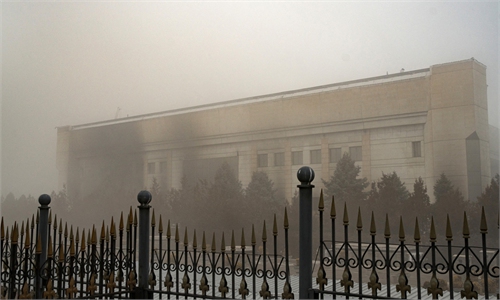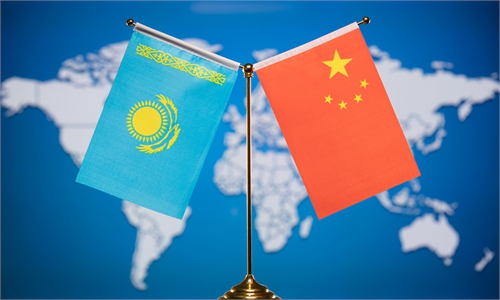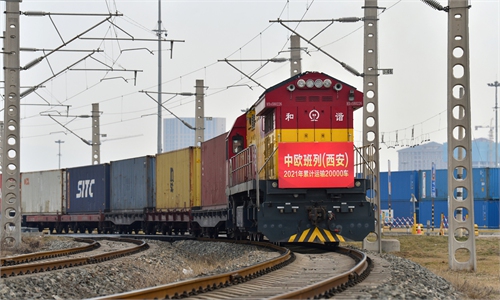GT Voice: China needs security coordination with neighboring countries over Kazakhstan

A burned-out administrative building is seen behind a fence in central Almaty on January 6, 2022.Photo: AFP
The unrest in Kazakhstan has attracted global attention over recent days. While the situation was reportedly largely brought under control by local authorities over the weekend, the worst violence in this Central Asian state in the past three decades has still triggered concern over the potential impact on China's economic and trade cooperation with Kazakhstan.Given the importance of Kazakhstan to China's Belt and Road Initiative and its energy imports, the Central Asian state's stability represents a high stakes issue for China, it is essential for China to not only offer Kazakhstan necessary support to help it restore order but also take this opportunity to actively coordinate security and stability affairs with neighboring countries.
As one of the major transit points and transportation hubs for China-Europe freight train services, Kazakhstan is an important country along the BRI route. In 2020, bilateral trade between China and Kazakhstan stood at $21.43 billion. It has attracted large amount of Chinese investment to upgrade its domestic transportation infrastructure. In 2020, China's direct investment in Kazakhstan reached $580 million, up 44 percent year-on-year. According to statistics from the Ministry of Commerce, as of the first half of 2018,the sectors where China invested most in the country were transportation and storage, mining, finance and insurance, construction, as well as processing and manufacturing.
Meanwhile, China and Kazakhstan have made remarkable achievements in energy cooperation. Kazakhstan is a major transit country for the China-Central Asia gas pipeline, which is an important support for China's West-East Gas Pipeline. The China-Kazakhstan oil pipeline is one of the sources for China's crude oil imports.
Moreover, China-Kazakhstan cooperation is also of strategic significance to the economic development of the Xinjiang region. China has long hoped that Kazakhstan, the first stop on China's Silk Road Economic Belt, could extend its influence and boost Xinjiang's connectivity.
Therefore, it is necessary to encourage stability in Kazakhstan and prevent external forces from sabotaging peace in Central Asia.
In the short term, some of the measures China could take are: first, ensure the safety of Chinese businesses in Kazakhstan by communicating and coordinating with local authorities and relevant countries and offering necessary economic and humanitarian support; second, while ensuring the safety of the China-Central Asia gas pipeline, make precautions through active coordination and preparation for strengthened cooperation; third, be prepared to push ahead with the BRI projects once the domestic situation stabilizes.
It is also worth noting that the key to the long-term peace and stability in Kazakhstan is to help the country address its economic difficulties through improved connectivity and investment.
Of course, all these measures are based on the premise that the situation in Kazakhstan needs to be brought under control. In this sense, it is essential for China to actively coordinate relevant security affairs with Russia and other neighboring countries while offering necessary economic support and humanitarian assistance to help the local government restore order as soon as possible.
To a certain extent, the Shanghai Cooperation Organization (SCO) is also expected to play an active role in easing the situation in Kazakhstan as most of Kazakhstan's neighbors are members of the SCO. On the one hand, these SCO members have a greater geographical advantage in dealing with the situation in Kazakhstan. On the other hand, they will directly face the potential damage of the spillover effect of the unrest in Kazakhstan. Therefore, it is in the common interest and mutual benefit of these SCO members to maintain the security and stability of Kazakhstan.



